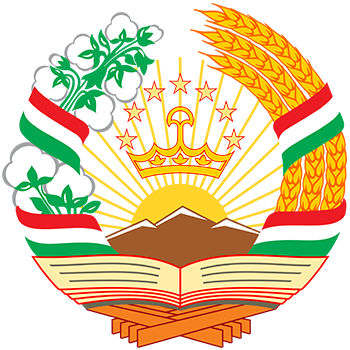Tajikistan is an agro-industrial country, has a large hydropower potential, large deposits of mineral resources as well as a large industrial potential. The proximity of large consumer markets in Russia and Kazakhstan, China, Afghanistan, and Pakistan makes this business very attractive.
The creation of free economic zones is included in the program of innovative development of Tajikistan. Indeed, it is difficult to imagine a modern business without such zones. According to experts, 30% of world trade passes through the FEZ. According to the regulations, the cost of renting a land plot is 1 dollar per 1 square meter per year. “Free Economic Zones” are territories where you can build a successful business. They not only attract investors, but also open up new opportunities for them.
Khatlon region - Khatlon's infrastructure is a developed network on highways, railways and airways spheres. Light food, chemical, electrical and metalworking industries are developed. The main rivers - Pyanj, Vakhsh and several reservoirs possess inexhaustible reserves of hydropower resources. The climatic conditions of the region, where there is a lot of sun, water as well as fertile valleys allows to grow vegetables and fruits up to 3 times a year.
The Khatlon region is represented by two free economic zones – “Dangara” and “Pyanj” FEZ.
“Dangara” is one of the developed economic zones in the Republic of Tajikistan and its territory is 521.03 hectares. The most promising enterprise being built on the territory of this SEZ is a Chinese oil production and refining company. The design capacity of the enterprise will be 1.2 million tons per year. Another major subject of the FEZ "Dangara" is the enterprise manufacturing metal structures with a capacity of up to one million tons of metal. Plants for the production of plastic and plastic pipes, a plant for processing as well as packing dried fruits and more are also being built.
The territory of the Free economic zone “Pyanj” is 401.6 hectares, where one sector with a territory of 186 hectares consists of trade, import, export, finance, innovation and the second of the territory of 215.6 hectares belongs to the industrial sector. Free economic zone of “Pyanj” Pyanj FEZ has a large number of raw material resources: such as silica sand, raw cotton which can be supplied from four large regions located within a radius of 50 km from the free economic zones as well as agricultural products. It has a well-established infrastructure, customs control, water and electricity. Currently, a number of contracts have been signed with the Korean toothbrush as well as the shoe companies.
Free economic zone “Sughd” was established in 2009. It’s located in the southwestern industrial part of Khujand. The total area is 320 hectares. The subjects operating in the SFEZ are engaged in the production of electric cables, polymer pipes, aluminium and PVC profiles, building materials, paints and varnishes, plastic containers, assembly and installation of solar collectors and deep pumps as well as metal recycling. The enterprises producing energy-saving lamps, furniture and more are being launched. The Sughd FEZ is a profitable platform for those enterprises that work for export.
The Gorno-Badakhshan Autonomous Region of the Republic of Tajikistan is located in its eastern part. This land is rich in unique beauty landscapes, the presence of rocks, healing springs with water and rich in useful minerals.
Free economic zone "Ishkashim" exists since 2011 and its territory is 200 hectares. The region in the north borders with Kyrgyzstan, in the east with China, and in the south and west with Afghanistan. Promotion and implementation of natural and recreational resources in the global tourist services markets will ensure the flow of foreign tourists to Tajikistan. The presence of numerous mountain rivers and rich water resources in the region is the basis for the development of hydropower, the construction of large hydropower plants as well as the development of small hydropower.
All zones of the country operate under a special tax program. In all free economic zones, income tax, tax on road users, VAT, tax on sales of cotton and primary aluminium, tax on natural resources, excise taxes, taxes on vehicles and real estate, customs duties on the export of products made in the territory of the FEZ for export equal to zero percent. From 10 types of taxes stipulated by the Tax Code of the country, the FEZ entities to pay only two types of the taxes such as: - a social tax (25%) is paid by the Payroll Fund, income tax from (8 to 13%) is deducted from the employee’s salary.
Protection of investors' rights and preferences, equal rights of domestic and foreign investors, legal protection of investors, guarantee of government non-interference in business, the right to transfer income abroad, the free movement of property and information, protection of intellectual property, the right to use natural resources is guaranteed.
In order to obtain the status of a subject of FEZ it is necessary to follow up the following steps:
1. To register a legal entity with the tax office;
2. To prepare a business plan and necessary documents;
3. To protect the investment project in the Commission under the Ministry of Economic Development and Trade;
4. To sign an agreement with the administration of the FEZ;
5. To get a certificate.
The cost of a certificate for any type of activity, regardless of its volume of production and turnover is 5000$ at a time.
Tajikistan is a place where a stable socio-political situation, favorable geopolitical location and abundant land resources contribute to a qualitative improvement in business development. All the conditions for prosperity are created here.
Free Economic Zones of the Republic of Tajikistan are stable.

 Русский
Русский 4 545
4 545 